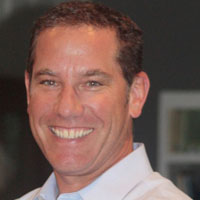15 Tough Questions Every Business Owner Must Ask
Every morning you get up, get dressed, down a cup of coffee (or several) and mentally begin running through the to-do list in your head. There are clients to visit, phone calls to make, emails to wade through, a new vendor who needs just a minute, bills to pay, orders to check on, a sales position to fill … and the list goes on. Before you know it, it’s getting dark outside and, if you are lucky that day, you’ve ticked off a few of the most pressing items on your list. The next day and the next and the next flicker by the same way like a scene from Groundhog Day.
When do you stop and really think about your business and where it’s headed? And when you do take the time to think about the bigger picture, what are the blunt, provocative and often uncomfortable questions you should be asking yourself? Are you willing to rock the boat?
Fifteen of the industry’s most successful business owners and visionary leaders lay out the questions (in no particular order) they think are most critical to those who want to think strategically about what’s next. To this list I’d add one more: If my company/product/service wasn’t around any longer, would anyone miss it?
Asking these types of candid, open-ended questions is a proven way to release your thoughts for deeper creativity, problem solving and goal setting. If you are not yet asking yourself questions such as these on a regular basis, consider the opportunities you may miss if you don’t. A suggestion is to ask yourself one new question every week. Add it to your to-do list, if you must.
1. “Do I know what it takes to make or keep the business successful? Do I have the energy and the resources to make it happen?
Ira Neaman, President, Vantage Apparel
2. “Do I really know what business I'm in, or am I confusing what we use with what we do?”
Gregg Emmer, VP and CMO, Kaeser & Blair
3. “How will we balance the online shopping habits of our clients with the brand standards required by their employers and the product safety standards required by the government?
Elizabeth Tate, CAS, Chairman/CEO, Signet, Inc.
4. “Web sales or personal sales? Alone or in partnership?”
Francesco Indrio, CEO, Alpi International Ltd.
Indrio explains: “I chose these two questions because I don’t even have an answer for them. Today things have changed and the internet is causing people to shorten their attention spans. In other words, previously one could make a presentation to a customer and rely on a certain amount of personal communication. Today, both distributors and suppliers tend to have a split second of the customers’ attention through electronic media. Previously the quality of the product and its characteristics could be explained at length. That tends to not happen anymore. The distributor who shows his wares online can only rely on the moment in which the end user clicks on an item, so he has to have all the information there at the customer’s disposal before the customer clicks on something else. And often the supplier has to provide that information so it can be seen, selected and used in that split second. It is a new and fast-changing world out there.
5. “What skill sets will my business need in three to five years?”
Jeffrey Batson, CAS, President, Next Products, Inc.
6. “At this point in time, what things matter most for the success of my company? Do I have the right people to get the job done quickly, effectively and optimally? If not, what am I going to do about it?”
Ross S. Silverstein, President & CEO, iPROMOTEu
7. “When my customers choose to buy from someone else, what (other than price) is the motivator?”
Mary Jo Tomasini, MAS, CE Competitive Edge, LLC
8. “What are the three most important things we need to offer decision makers who want to buy promotional products in 2016 and beyond?”
Jim Franklyn, VP of Sales and Marketing/Partner, InkHead Promotional Products
9. “How do we stay relevant in an industry that is becoming ever more affected by advances in technology?”
John Houlding, President, Cotton Candy, Inc. (no photo on this one)
10. “Would my customers refer/promote our company to others?”
Jim Hagan, Chairman, Sweda Company LLC
Hagan adds, “I think about this one every day.”
11. “How do I continue a consistent growth trend?”
C.J. Schmidt, President, Hit Promotional Products
12. “What is more important: increasing my actual revenue or my actual profit?”
Rosalind Plummer, MAS, V.P. Sales and Marketing, Clearmount
13. “What is the single biggest opportunity and what is the single biggest risk to my company in the upcoming year?”
Jonathan Isaacson, CEO, Gemline
14. “How am I going to go to market?”
Bonni Sandy, CEO/President, Dard Products, Inc.
Sandy explains: “[These are] your key points that separate you from everyone else.”
15. “Are we addressing the real needs and wants of our customers?”
Joe Fleming, President, Hub Pen Co.
Fleming explains: “What we perceive as important may not be what’s important to them.”
Got A Question?
What are the smartest questions business owners should be contemplating? Tell us at PPB@ppai.org and we’ll share your thoughts in an upcoming issue.
Know How To Rock the Boat
Six Credos To Create The Business You Want
By John Tschohl
My definition of “rocking the boat” is to do things differently to the point of causing society to take note of a change in direction. It’s believing in yourself and jumping into the sea of opportunity.
In my book, Moving Up, I said, “I’m tired of watching life pass by the millions of talented employees and future business owners who—for whatever reason—don’t connect their passion with their success. Life happens to all of us and it can be overwhelming, depressing and make our dreams and aspirations seem small … and don’t you believe it for a second.”
1. Believe in yourself. Believing in yourself is all about being sure that you are going to do whatever you want even if others stand against you. Usually, when you decide to take a big challenge or to do something that people failed to do, you will find that everyone will not support your vision. But don’t take it personally. You’ll waste energy when you focus on what others think about you.
2. “Everything is going fine here. Don’t rock the boat.” How often has this been said? I literally feel like pulling my hair out when I hear someone say, “But it’s always been done that way.” So what? For years we rode in carriages pulled by horses until Karl Benz from Germany invented the automobile. And we beat our clothes on a rock before Alva Fisher invented the washing machine in 1908. If you try to do or say something that causes problems, especially if you try to change a situation which most people do not want to change you are considered a “boat rocker.”
Mark Twain said, “Twenty years from now you will be more disappointed by the things you didn’t do than by the ones you did do.”
3. Be bold and self-confident. I believe your greatest opportunity for achieving your professional or personal goals is to be bold and self-confident. Go ahead and compete for a position above your level (that’s rocking the boat). You must work harder than anyone else, set yourself apart, and be connected and engaged.
When you empower yourself to work toward your goals, be proactive and overcome your self-imposed limitations, you can begin to develop yourself both personally and professionally.
4. If we fail to learn we fail to grow. Since 1979, I have spent much time and money learning about customer service, the customer experience and everything related to customer service. The result has led me to position myself as the leading service strategist and expert in the world. I believe that learning is the fundamental activity in a successful and purposeful life. Life gives us endless opportunities to learn, and the more difficult the situation, the more we are likely to learn and take that inevitable leap to be able to rock the boat with confidence, which is our investment in our success.
5. Gravitate toward successful people. To achieve your goals you need to gravitate toward successful people with a positive attitude. When the mentors, co-workers and friends you associate with have a positive attitude, it rubs off on you. It makes you want to work harder to become as successful as they are. You begin to look at the bright side of every situation and try to find ways (rock the boat) to solve problems and improve outcomes.
6. Add value to other people’s lives. T. Harv Eker, speaker, businessman and author of Quotes from Secrets of the Millionaire Mind, explains this one best:
“Your life is not just about you. It’s also about contributing to others. It’s about living true to your mission and reason for being here on this earth at this time. It’s about adding your piece of the puzzle to the world. If you want to be rich in the truest sense of the word, it can’t only be about you. It has to include adding value to other people’s lives.”
The only thing keeping you from being exceptional is your own determination. Others may tell you that you can’t possibly do it. You may even hear yourself say that you don’t deserve it. When that happens, stand up and start rocking the boat, and watch things begin to happen.
John Tschohl is an international service strategist and speaker. He is founder and president of the Service Quality Institute in Minneapolis, Minnesota. Described by Time and Entrepreneur magazines as a customer service guru, he has written several books on customer service including Moving Up. The Service Quality Institute (www.customer-service.com) has developed more than 26 customer service training programs that have been distributed and presented throughout the world. Tschohol’s free monthly strategic newsletter is available online. Find him on Facebook, LinkedIn and Twitter.















